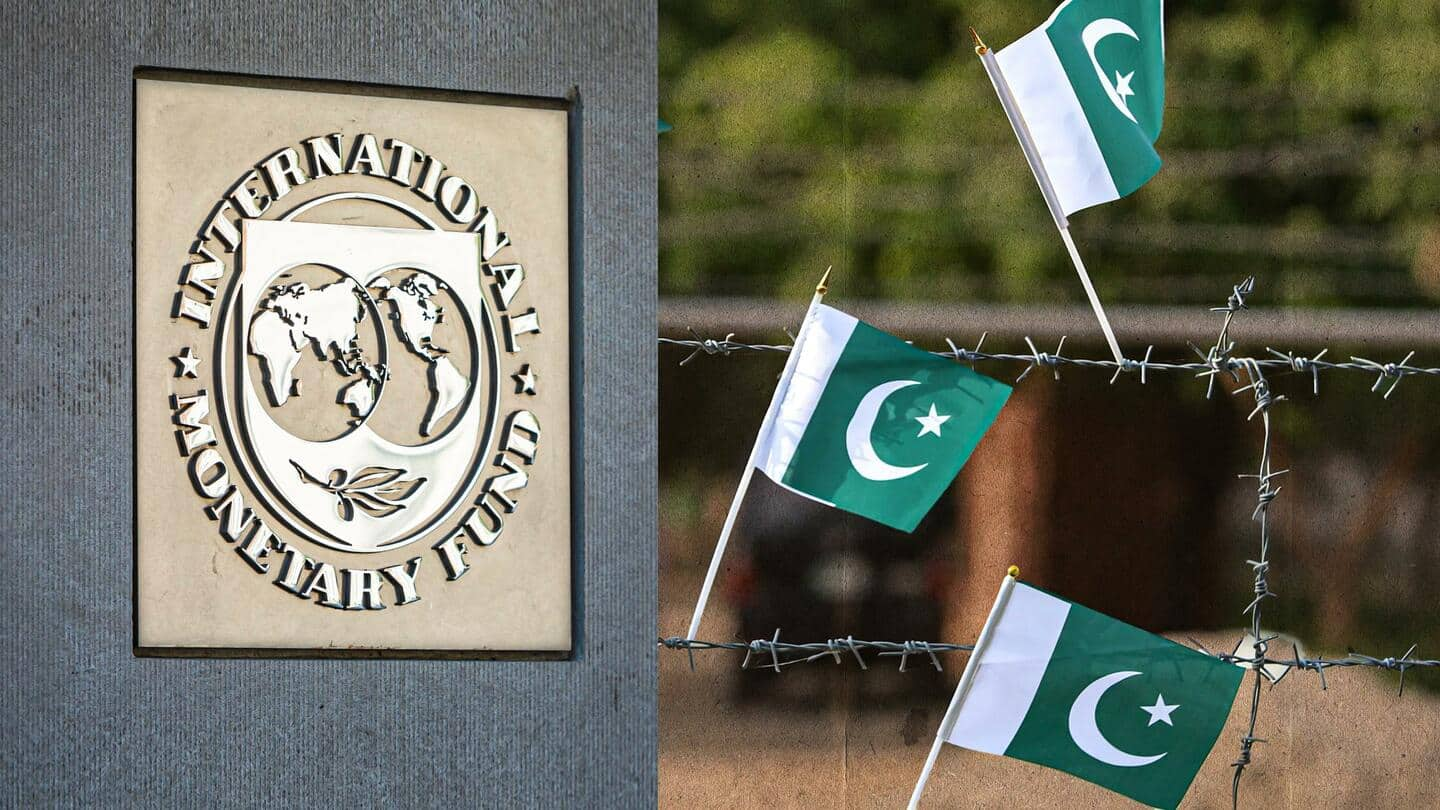
Cash-strapped Pakistan, IMF fail to reach deal on bailout package
What's the story
Pakistan and the International Monetary Fund (IMF) reportedly failed to arrive at a clear agreement for the latest installment of the bailout package pending since November, amounting to $1.1 billion. Thursday was the last day of urgent talks held in Pakistan. However, Pakistan's finance secretary seemed upbeat about reaching an agreement that would save the country from bankruptcy and soaring inflation.
Context
Why does this story matter?
Low forex reserve and cash crunch have caused food inflation in Pakistan. Reportedly under pressure from the IMF, crisis-stricken Pakistan last month removed its unofficial price cap, triggering its currency's biggest single-day decline by nearly 10%. Laden with debt, Pakistan secured a $6 billion bailout from the IMF in 2019. However, the IMF held back the latest installment, demanding economic reforms from Pakistan.
Talks
Will reach a deal soon: Pakistan's finance secretary
The talks between Pakistan and the IMF went on for 10 days in Islamabad. Without giving out many details, Pakistan's Secretary of Finance Hamed Sheikh said, "The negotiations with the IMF have been completed. The IMF has handed over the MEFP (Memorandum of Economic and Financial Policies) document [to Pakistan]." An agreement has already been struck with the IMF on prerequisite measures, he said.
Details
IMF examined Pakistan's foreign loan sources
Sheikh said the IMF assessed the sources of the foreign influx of money and that all matters between the IMF and Pakistan have been agreed upon. The IMF mission, led by Nathan Porter, will release a statement after approval from Washington. The United States-based lender has asked Pakistani authorities to strike a staff-level pact in the coming days to get the loan released.
IMF
Pakistani rupee currently at 271 against US Dollar
During talks, the IMF expressed its apprehensions over the projections made by Pakistan's finance ministry concerning external financing inflows from bilateral and multilateral creditors and commercial loans. The bailout could provide Pakistan a lifeline as the State Bank of Pakistan (SBP)-held foreign exchange reserves have fallen to $2.91 billion. Currently, the Pakistani rupee stands at 271.24 against the US Dollar.
Background
Flood exacerbated the crisis in Pakistan
Last month, the SBP raised interest rates to a 24-year high to battle abrupt price rises. Videos on social media showed citizens fighting for food and chasing food trucks. The bailout package has been stalled repeatedly after the former government led by Imran Khan backpedaled on subsidy agreements and tax collection commitments according to the deal, which was followed by a devastating flood.